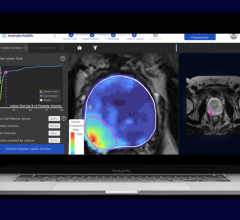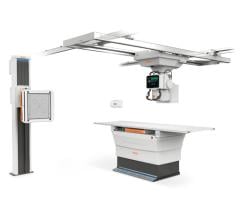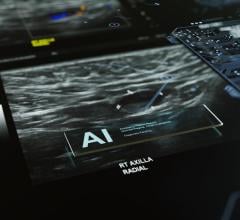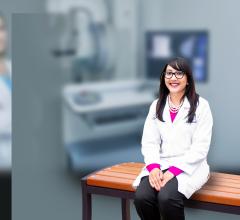
December 11, 2018 — Medical artificial intelligence (AI) software company Lunit announced three new members of its advisory board, including Eliot Siegel, M.D., FACR, FSIIM; Linda Moy, M.D.; and Khan Siddiqui, M.D.
Siegel is known as a visionary in radiology and one of the early pioneers of the picture archiving and communication system (PACS). He is professor and vice chairman of research information systems at the University of Maryland, adjunct professor of computer science and biomedical engineering at University of Maryland, and is chief of radiology and nuclear medicine for the Veterans Affairs Maryland Healthcare System, Baltimore. Under his guidance, VA Maryland Healthcare System became the first filmless healthcare enterprise in the world. He has served various leadership positions in academic societies including SPIE, the Society for Imaging Informatics in Medicine (SIIM), the American College of Radiology (ACR), the National Cancer Institute and the Radiological Society of North America (RSNA). Siegel currently serves as co-chair of the Conference on Machine Intelligence in Medical Imaging. He has written over 300 articles and book chapters about PACS and digital imaging and has made more than 1,000 presentations throughout the world on a broad range of topics involving the use of computers in medicine.
“Deep Learning, commonly referred to as AI, will have a profound impact on diagnostic imaging in the next several years and will become an indispensable and ubiquitous tool in routine clinical practice," said Siegel. "Innovations will come partly from large and well-established healthcare and imaging vendors, but particularly from nimble and creative start-ups and other smaller companies with core expertise in machine learning or niche clinical applications. The sophistication, efficacy and safety of these vary considerably, especially in these early times of AI implementation. I have been particularly impressed with Lunit’s academic/research pedigree including numerous publications that have advanced the science of machine learning in imaging, their impressive success in Imagenet, Camelyon and other computer vision competitions, and their clinical leadership including six board-certified medical directors and 15 additional radiologists/pathologists. This combination of pushing the research envelope and solid clinical input and leadership serves as a model for the evolution of AI vendors in medical imaging.”
Moy, a key opinion leader in breast imaging, is a professor at NYU School of Medicine. She holds a joint appointment at the NYU Langone Medical Center and at the NYU Center for Advanced Imaging Innovation and Research. Her career as a clinician and researcher focuses on diagnostic oncologic imaging, with an emphasis on the detection of breast cancer.
Her research team has been awarded major research grants from the National Institute of Health and Department of Defense. She has authored or co-authored more than 140 original research articles, reviews and editorial articles. She is the editor of two textbooks on breast magnetic resonance imaging (MRI). She has made more than 100 major presentations at international events. She is the chair of the RSNA Scientific Program Committee on Breast Imaging. She also serves as a deputy editor for breast imaging at the journal Radiology. She is the chair of the ACR Joint Committee on Breast Imaging for the Appropriateness Criteria and chair of the ACR Practice Parameters and Technical Standards. In addition, she holds leadership positions in the International Society for Magnetic Resonance in Medicine (ISMRM), American Roentgen Ray Society (ARRS) and the Society of Breast Imaging (SBI).
“Lunit has developed innovative solutions that address the limitations of screening mammography,” said Moy. “Although their advanced medical image analytics will improve diagnostic accuracy, I’m particularly excited about their development of novel imaging biomarkers that will improve the quality of care for our patients.”
Siddiqui is a serial entrepreneur, and founder and chief medical/chief technology officer of higi, a medical technology company that makes self-service health stations. He brings over 22 years of experience as a practicing clinician and technology professional. Siddiqui is a visiting associate professor at the Department of Radiology at John Hopkins University School of Medicine and former co-director at the Center for Biomedical & Imaging Informatics, Johns Hopkins University. Prior to founding higi in 2012, Siddiqui was a physician executive and principal program manager at Microsoft. Siddiqui has published dozens of peer-reviewed publications and holds 12 patents for technology in areas of deep learning, AI, image processing and data visualization, as well as securing patient information handling and health records.
“Radiologists play an immense role in improving patient outcomes via early disease detection,” said Siddiqui. “Great advancements in artificial intelligence-based disease detection solutions by Lunit will lead to earlier and faster diagnosis, thereby improving radiologists’ accuracy and productivity. I am excited to join the advisory board to help guide product development and address pressing clinical needs of early disease detection with AI enabled tools.”
Siegel, Moy and Siddiqui will join Jihoon Jeong, M.D., Ph.D., and Kyunghyun Cho, Ph.D., in providing expert insight at Lunit’s advisory board.
For more information: www.lunit.io
Related Artificial Intelligence Content
Technology Report: Artificial Intelligence


 May 16, 2024
May 16, 2024 








